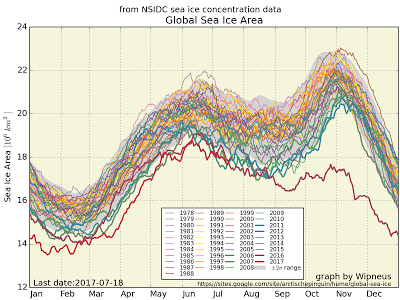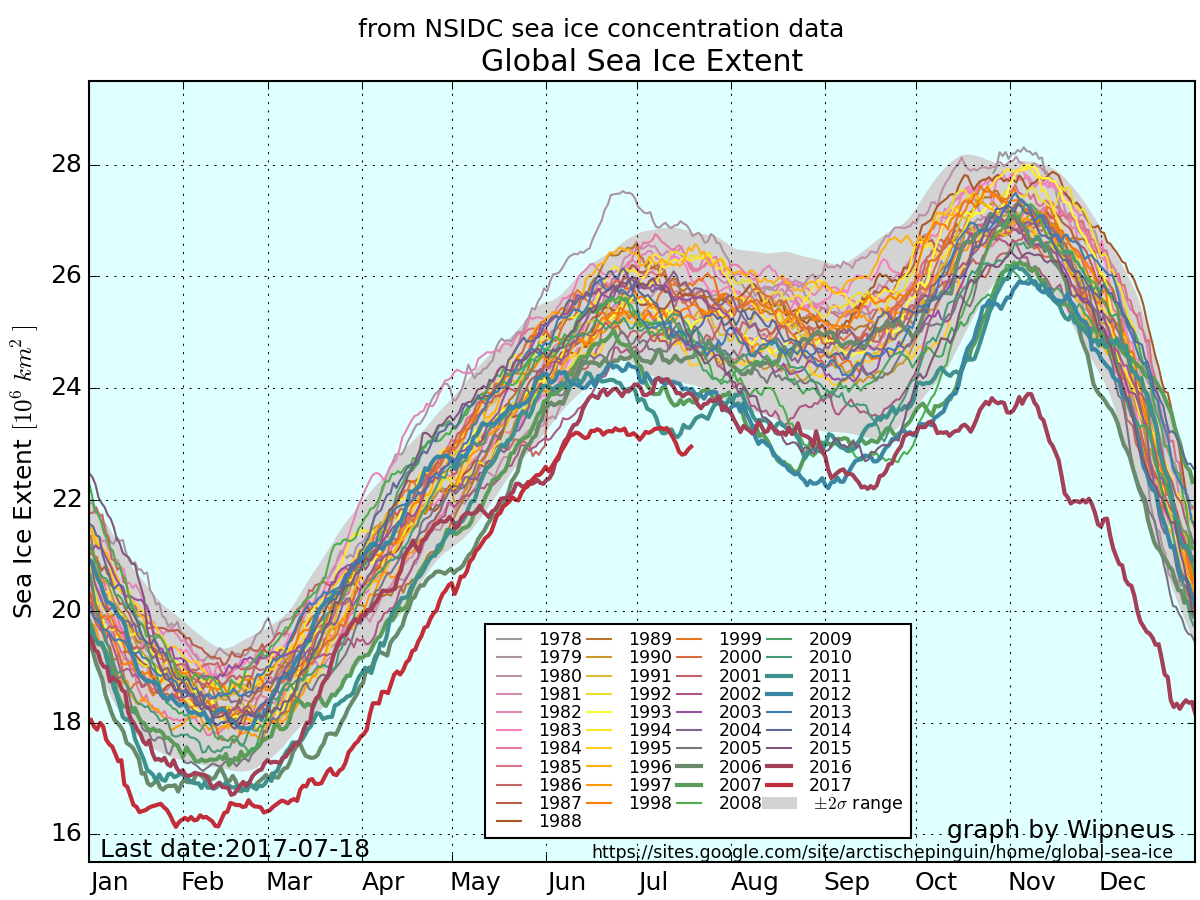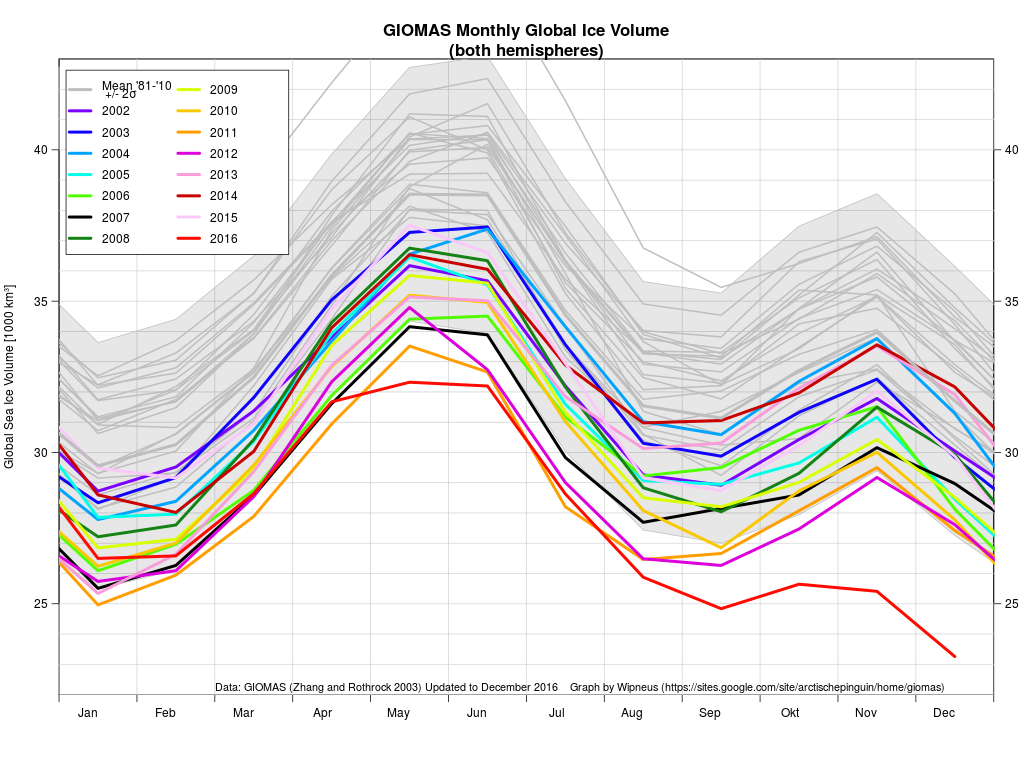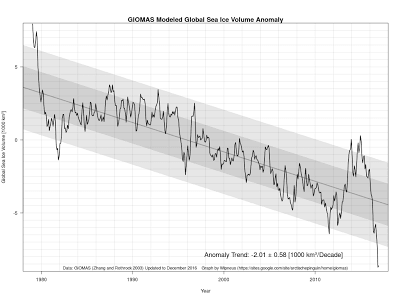Environment & Energy
Related: About this forumGlobal Sea Ice Coverage Falling Off A Cliff - We Have Never Seen Extent, Area & Volume This Low
Frozen water. It’s an important aspect of our world. One that is essential to maintaining a stable climate and, by extension, the health of modern civilizations. Today, due to a continued warming of the globe, every form of frozen water — be it frozen water locked in glaciers, snow, or sea ice — is under threat. And we are almost daily reminded of new losses coming from these needed collections of cold.
Recently, however, one of these subsets of global ice has taken a very serious blow. For this past year, as ocean and land surfaces warmed to above 1 C warmer than late 19th Century averages, has seen a precipitous fall in the coverage of global sea ice. And we are now in uncharted territory as the Earth’s sea ice extent, area, and volume have fallen to never before seen lows.
 ?w=294&h=220
?w=294&h=220
 ?w=295&h=222
?w=295&h=222
 ?w=299&h=224
?w=299&h=224
 ?w=294&h=220
?w=294&h=220
(Sea ice area [Ed. - 1], extent [Ed. - 2], and volume [Ed. - 3-4] have all seen very serious declines that have now lasted for a full year. Since reflective sea ice is an important regulator of global and regional climates, the impacts of such a considerable loss is likely to be both long-term and wide-ranging. Image source: Global Sea Ice.)
Total sea ice area and extent have now ranged between 2 and 3 million square kilometers below the 38 year average for about a year now. That’s a region of sea ice larger than Greenland which has been removed from the face of the Earth now for the better part of four seasons. Global sea ice volume losses are now in the range of 12,000 cubic kilometers — each cubic kilometer roughly equal to a moderate-sized mountain. These are very considerable losses. But perhaps more ominous than the losses themselves is the fact that they seem to be sticking around — locking in a permanent warming-related-change to the Earth System, its weather and environment.
EDIT
Arctic regions also face considerable added heat pressure to permafrost, boreal forests, and other carbon stores as a result of Arctic Ocean albedo feedbacks due to sea ice loss. In addition, warm pools of ocean water in the far north will aid in further destabilizing already-altered weather patterns. So sea ice loss is likely to continue to result in a worsening of the Jet Stream excursions that have already contributed to extreme weather — particularly in the Northern Hemisphere.
But perhaps the most concerning impact of sea ice loss is an alteration to seasonal temperature exchange. More heat absorbed by oceans during summer and then ventilated back to the atmosphere during fall and winter will tend to result in a lag in global cooling into the fall season even as winter will tend to warm.
EDIT
https://robertscribbler.com/2017/07/19/global-sea-ice-coverage-has-fallen-off-a-cliff-impacts-likely-to-be-wide-ranging/
Thanks for posting